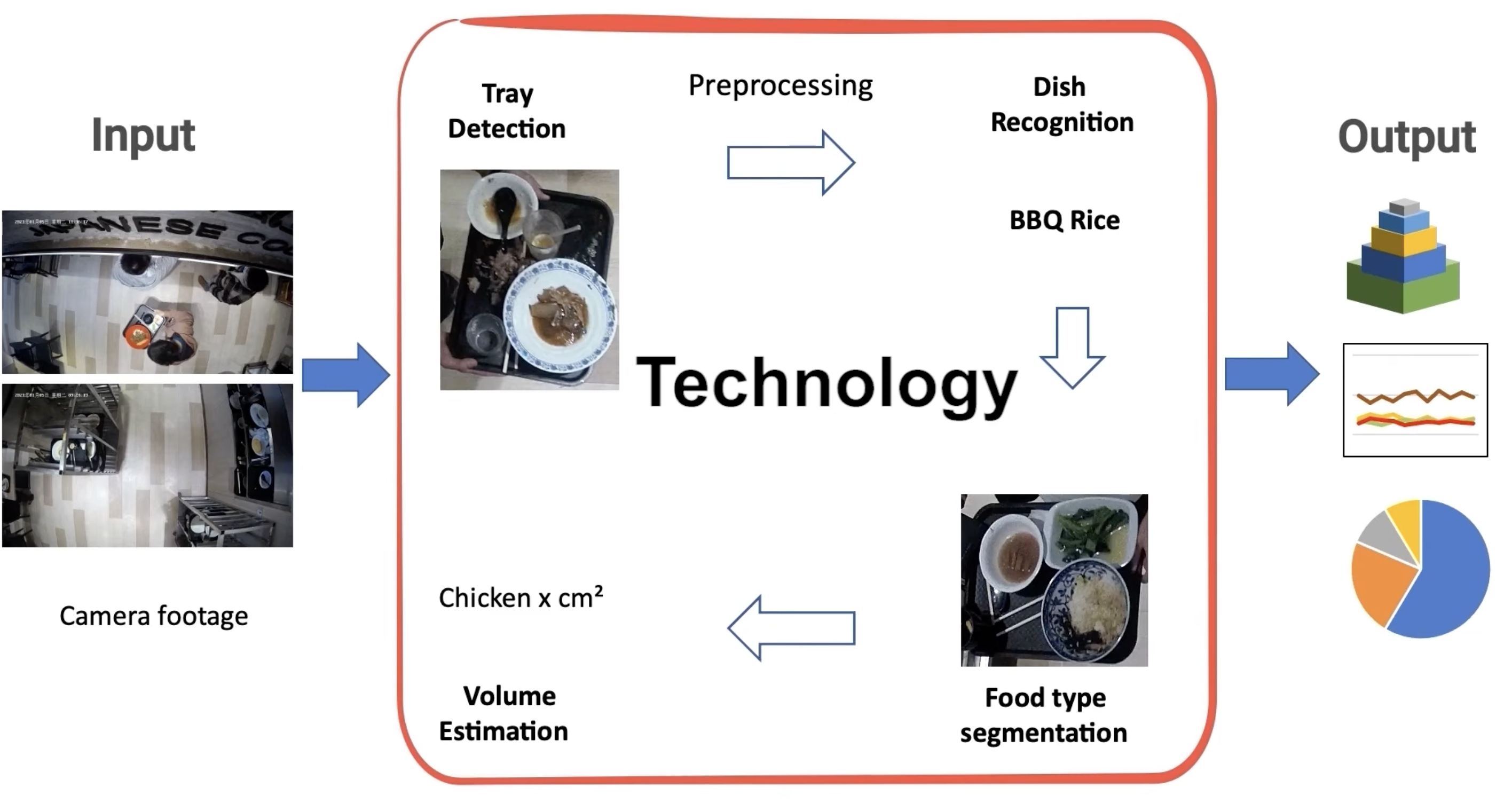WASTE
HKUST’s waste management strategy prioritizes waste prevention, reduction, reuse, and recycling over sending waste to Hong Kong’s landfills and incinerators. Our approach encourages the minimization of waste generation at the source while also promoting life-cycle costing and participation in the circular economy to help keep resources in use for as long as possible.
Our waste management strategy is shaped by a data-driven approach that encompasses a range of innovative approaches. We measure waste generated at from difference sources campus and ensure we have a breakdown of the types of waste being collected to enable us to developed targeted policies, practices, and smart interventions.
We recognize that effective waste management requires a systems thinking approach that recognizes the interdependencies among social, economic, and environmental factors, allowing us to identify root causes of waste issues and implement appropriate solutions. Solutions will require infrastructure investment and planning and must be integrated with our campus community engagement and education to foster responsible consumption behaviours.
HKUST strives to minimize waste generated and maximize recycling with an ambitious goal to reduce our operational waste going to landfill by 75% by 2028. The growing campus has the largest influence on the amount of waste generated, with the population set to increase with the addition of new residence halls and laboratory buildings.
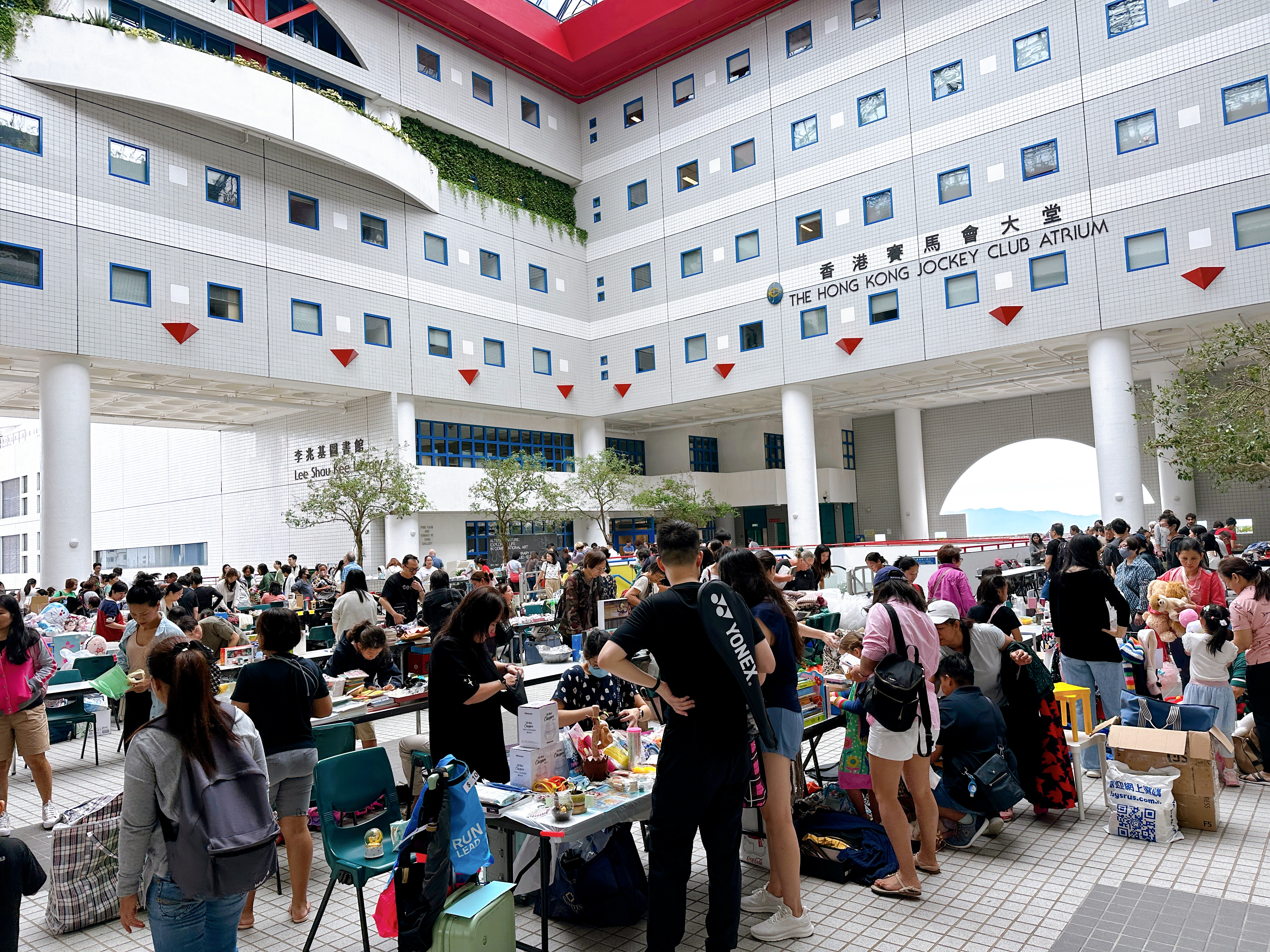
Category |
2022-23 Tactic |
2022-23 Progress Activities |
Disposables |
Eliminate one-time-use plastics and non-biodegradable disposables that cannot be recycled. Reducing the need for these materials is the priority. Developing reusable container programs, lunchbox borrowing schemes, and financial disincentives are options. | Phase I pilot program of biodegradable containers in restaurants across campus. Full launch of the Lunchbox Lending Program (LLP). |
Extending Life of Materials |
|
|
New Approaches |
|
|
- Incorporating Waste Reduction into Management: The Cleaning Steering Committee discuss waste and recycling management, review data, conduct food waste audits, and prioritize the well-being of cleaners.

- Action Plan to Reduce Plastic Waste: The 2028 Sustainability Challenges demonstrate that the University's action plan involves implementing strategies to eliminate disposable items and reduce plastic waste from the campus eating establishments.
- Extending the Action Plan to Contractors: The Sustainable Catering Policy indicates that the University mandates caterers to minimize and eventually eliminate the use of single-use plastic utensils and materials in their operations (refer to the page 2 of the Policy). Additionally, there is a ban on selling single-use plastic water bottles on campus.

- Waste Tracking Effort: The University’s progress in priority areas such as Waste to the Landfill is governed by HKUST's policy on transparency of sustainability data (refer to HKUST Sustainability webpage) and therefore available for the public to review. Each operational area of focus includes measurable indicators, providing the broader community with access to real data that indicates our progress and performance over time. HKUST has a target of reducing the waste sent to the landfill by 75% compared to the 2014 baseline, by reducing the disposal number, and increasing the recycling number, both numbers are updated periodically on the website for progress tracking.
- Sustainable Food Sourcing: The Sustainable Catering Policy (refer to the page 1 of the policy) includes purchasing provisions that mandate caterers to develop and disclose a sustainable food practices plan. The policy also prohibits the use of any species listed on the WWF-Hong Kong Sustainable Seafood Guide and promotes the use of Environmentally Preferable Cleaning Chemicals (EPCC) that minimize harm to water quality and plant and animal habitats to achieve ethical sourcing of food on campus.
- Ethical Sourcing For Offices: the Sustainable Office Standards and Guidelines (refer to section 3) sets standards for ethically sourcing supplies and requires contractors doing business with HKUST to provide a Living Wage.
- Environmentally-friendly Sourcing: The Operational Guidelines on Sustainable Purchasing (refer to section Guidelines for Specific Items) stated that all offices are required to produce 100% recycled or FSC certified paper for office printing. It is also recommended that office should Choose suppliers that provide environmentally friendly office supplies such as refillable pens, biodegradable garbage bags, ethically sourced eco-friendly souvenirs to achieve ethical sourcing.
- Minimizing Plastics in Offices: The Sustainable Office Standards & Guidelines include standards on purchasing in bulk to minimize the amount of plastic packaging (refer to section 3). The guidelines state that offices are prohibited from using plastic, single-use bottled beverages at meetings and events. Since 2018, HKUST has also maintained a ban on the sale and distribution of plastic bottled water under 1 Liter on campus.
- Minimizing Plastics in Catering: The HKUST Sustainable Catering Policy (refer to page 1 of the Policy). states that caterers must comply with measures to reduce the use of plastic, especially one-time use disposable plastic. Efforts should include eliminating the free provision of plastic items such as straws and utensils and adopting measures to reduce overall plastic packaging. If plastic is still used, additional measures should be put in place to ensure its separation, collection, and recycling, as well as the separation and recycling of other materials to reduce the overall landfill waste.
- Single-Use Plastic Ban in Campus Food Outlets: Following government’s initial regulation on the use of plastics in catering, restaurants at HKUST including all campus food outlets will no longer be allowed to offer customers polystyrene products, disposable plastic straws, stirrers, cutlery or plates for dine-in and takeaway. The move will also extend to throwaway plastic cups, cup lids, food containers and their covers - but only for sit-down diners,
- Trial on Using Zero Plastic Takeaway Container: In addition to the policies and guidelines, the University has carried out the Zero Plastic Takeaway Container Pilot Program to educate and promote the minimization of disposable items. Campus community was provided with takeaway container that is free of plastic lining or biodegradable plastic when ordering takeaway in certain canteens, cutting down the plastic use on campus.
Image
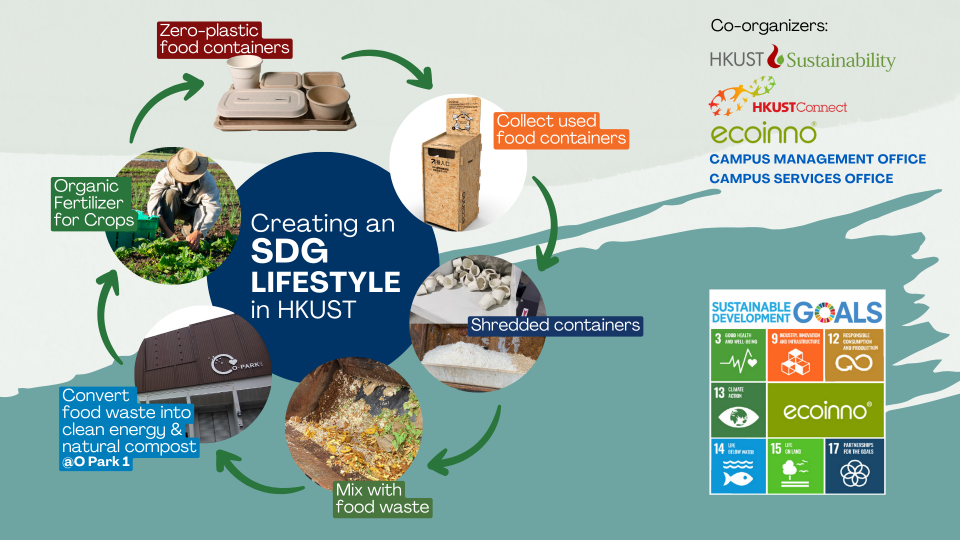
- Minimizing Disposable in Offices: The Sustainable Office Standards and Guidelines include standards for purchasing in bulk to minimize the amount of plastic packaging (refer to the page 3-4 of the Standards and Guidelines) and the preference for reusable cutlery, mugs, and tableware over plastic items (refer to the page 5-6 of the Standards and Guidelines). These guidelines were initially adopted in 2016, with review and revisions made in 2023.
- Minimizing Disposable in Catering: In addition, in the Sustainable Catering Policy, caterers are required to take measures to minimize the use of disposable items, especially single-use plastics. Efforts should include discontinuing the provision of free disposable plastic items (e.g., straws, utensils) and implementing measures to reduce overall plastic packaging (refer to the page 1 of the Policy). This policy was adopted in 2016, with revisions accepted in 2018 and again reviewed and updated in 2023.
- Implementation of Waste Charging Scheme: To reduce the disposable items, HKUST also implemented its internal Municipal Solid Waste (MSW) Charging Scheme on campus which aims to achieve waste disposal reduction through behavioral changes.
- Launch of Lunch Lending Program to reduce Disposable: In addition to the policies and guidelines, the Lunchbox Lending Program has been implemented on campus since 2023, it involved the installation of a distribution machine to lend up to 120 reusable lunchboxes, and a corresponding reverse vending machine, offering users a green alternative for disposable takeaway containers and minimized its use on campus.
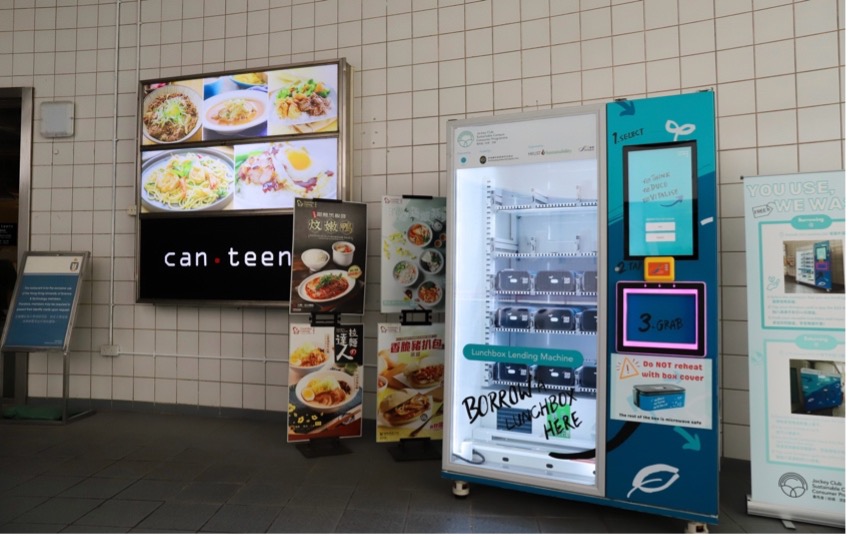
- Actions to Reduce Disposable and Plastics in Catering: The Sustainable Catering Policy states that caterers must take steps to reduce the use of disposable items, especially single-use plastic. These efforts should include stopping the provision of free disposable items (e.g., straws, utensils) and implementing measures to minimize the amount of plastic packaging. This policy was adopted in 2016, with revisions accepted in 2018 and again reviewed and updated in 2023.
- Actions to Reduce Disposable in Cleaning: Additionally, cleaning contractors of HKUST are required to purchase cleaning materials in bulk and in concentrated form to minimize waste. Specialized equipment has been installed by cleaning contractors for reconstituting concentrated powders or liquids for use on campus. Additionally, cleaners use microfibers to further reduce the use of non-recyclable materials.
- Require Contractors and Suppliers to Purchase Sustainably: The University maintains the HKUST Sustainable Purchasing Requirements For Suppliers and Contractors, which includes a Green Procurement Checklist to be included in Tender Submission. Item M1 requires building contractors and design consultants to provide a Site Waste Management Plan to minimize waste to landfills and achieve a 60% recycling level of construction and demolition waste in line with BEAM Plus requirements.
- Education on Fast Fashion: The University has been organizing the Clothing Swap events where students donate their unuse clothes and other community member will be able to take them so that the clothes are not going to landfill.
Image
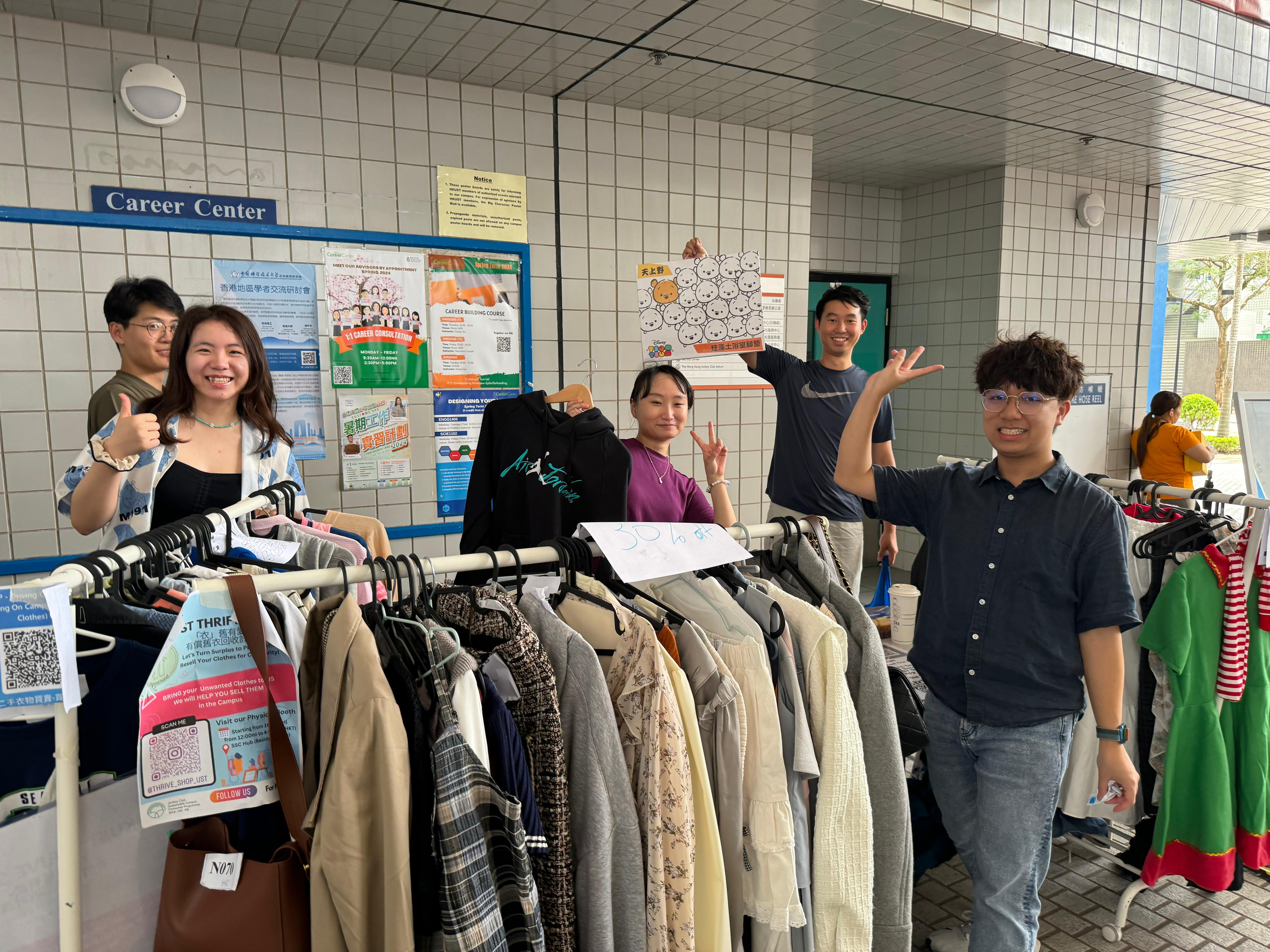
- Promoting Second-hand Item Culture: Started in 1996, HKUST has been organizing Garage Sale regularly, allow the HKUST Community to sell and buy unwanted goods. This regular event provides an alternative option for the community members to handle the goods rather than sending them to landfills.
Image
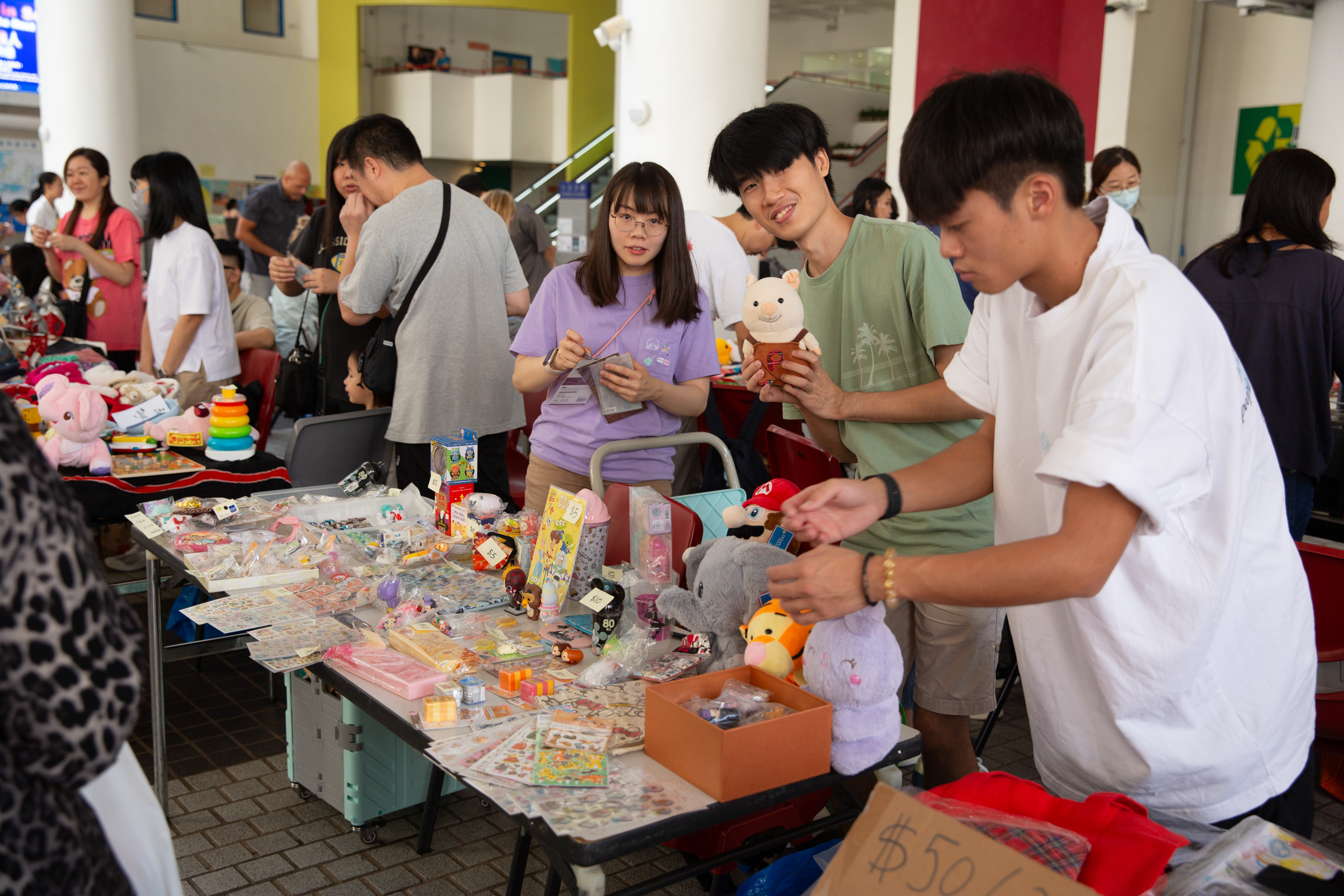
- Reusing and Redistributing second-hand assets: The University is exploring to collaborate with a specialized sustainable asset management business that facilitates responsible reuse and redistribution of material assets. With the collaboration the University can acquire second use assets during renovation and having new development projects.
- Reusing Furniture: In addition, the unwanted furniture from the HKUST offices will be sent to temporal storage space for potential reuse. These actions help the offices in HKUST to contribute to a circular economy.
Image

- Minimizing Waste in Events: In additional to the operational initiatives, HKUST also has an Operational Guidelines on Sustainable Purchasing which guides the offices how to purchase and host events sustainably following certain standards that are commonly followed in the industry.
- Guidance on Second-hand Goods Purchasing: The Guidelines are accompanied by the Second-Hand Goods Purchasing & Reimbursement Guidelines with a step-by-step tutorial how to purchase and reimburse second-hand goods in HKUST. These Guidelines help the offices to run the operations sustainably with clear guidance, therefore empowered to participated in the circularity effort of the campus.
- Minimizing and Chemical Waste Generation: The University has also introduced the Chemical Exchange Program (CEP) with a purpose of reducing chemical waste generation. any unwanted chemicals (assuming in acceptable condition) can be given away Free of Charge to colleagues at HKUST and chemical users at other local sister tertiary institutions. Chemicals listed in the CEP are typically surplus chemicals of high quality and have not broken their factory seals. Through the CEP, not only the HKUST community is engaged in circularity effort, but also engaging the partner institution in Hong Kong.
- Minimizing and Recycling Landscape Waste: In addition, the landscaping contractors on campus is required to recycle the landscaping wastes generate on campus and reuse them if possible. The University has seen 15 bags of shredded leaves per month being applied on the campus landscape, not only reducing the number of landscape waste, but also helped to improve the soil content of the campus and reduce water consumption for irrigation.
- Minimizing and Recycling Wood Waste: The Tree Planting & Felling Policy (refer to section Tree Felling Guidelines) outlined that trees shall be felled in a way to maximize the potential for timber reuse. And the University already has a successful project of using recycled wood from the felled trees of a development project to create furniture, art installation, and souvenir. Marking a successful circularity milestone.
Image

- Minimizing and Recycling Food Waste: In the Sustainable Catering Policy, Caterers must comply with all measures, introduced by the university to ensure that the least amount of food waste enters the landfill, including separating and recycling food waste (both post-consumed food waste and pre- treatment/kitchen food waste). Caterers shall also provide and will cooperate with the University’s food waste recycling program (e.g., “Less Rice”). Separated food waste is sent to Organic Resources Recovery Center (O.Park) for recycling into biogas and compost.
- Case study: Organic waste composter
HKUST has introduced a composting machine that can convert a maximum of 100L of organic waste into compost. The machine is accompanied by a shredder and mixer for organic waste processing. Frontline workers and officers have received training in its operation.
By processing targeted organic waste, such as coffee grounds from on-campus catering operators and used paper towels from washrooms, the machine reduces the amount of waste sent to landfills. Through diverting organic waste from landfills, HKUST reduces its environmental footprint and contributes to a more sustainable campus.
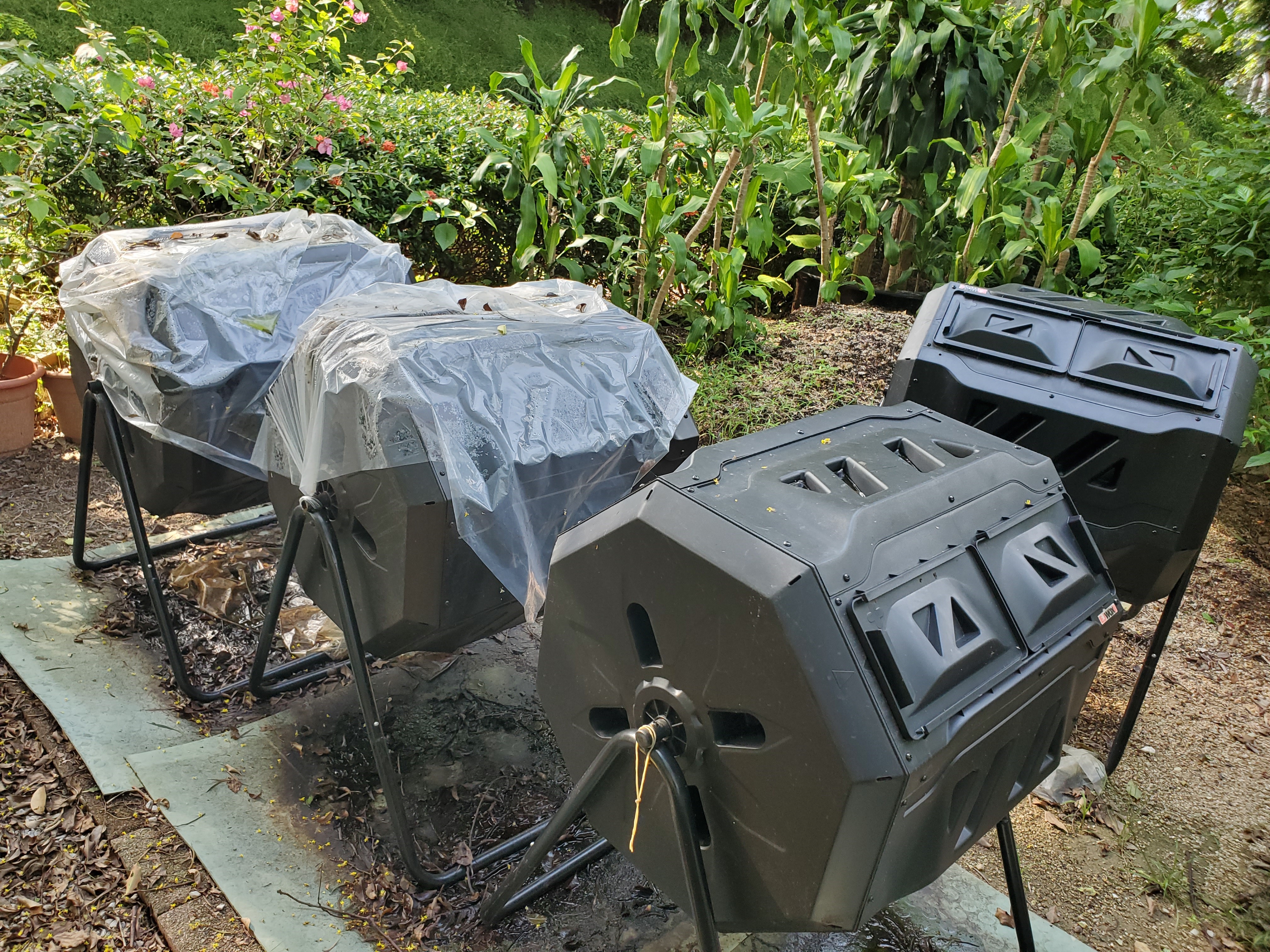
- Minimizing Hazardous and Toxic Waste: As stated in the University’s website, to achieve the goal of reducing the generation of hazardous and toxic waste, the University has operations or experiment planning that included action designed to minimize the use of chemicals, materials or resources necessary, including buying in container sizes appropriate to the actual use, reducing the inventory of hazardous materials, locating other consumers for expired or soon-to-be-expired chemicals etc.
- Carbon Negative Food Waste Consumption System: Projects example being the Black Soldier Fly Bin, utilizing black soldier fly larvae and IoT technologies, the BSF Bins convert both cooked and uncooked campus waste into organic fertilizer. Through this project, the University aims to not only reducing the waste sent to landfill but recycle them by turning them into compost.
Image
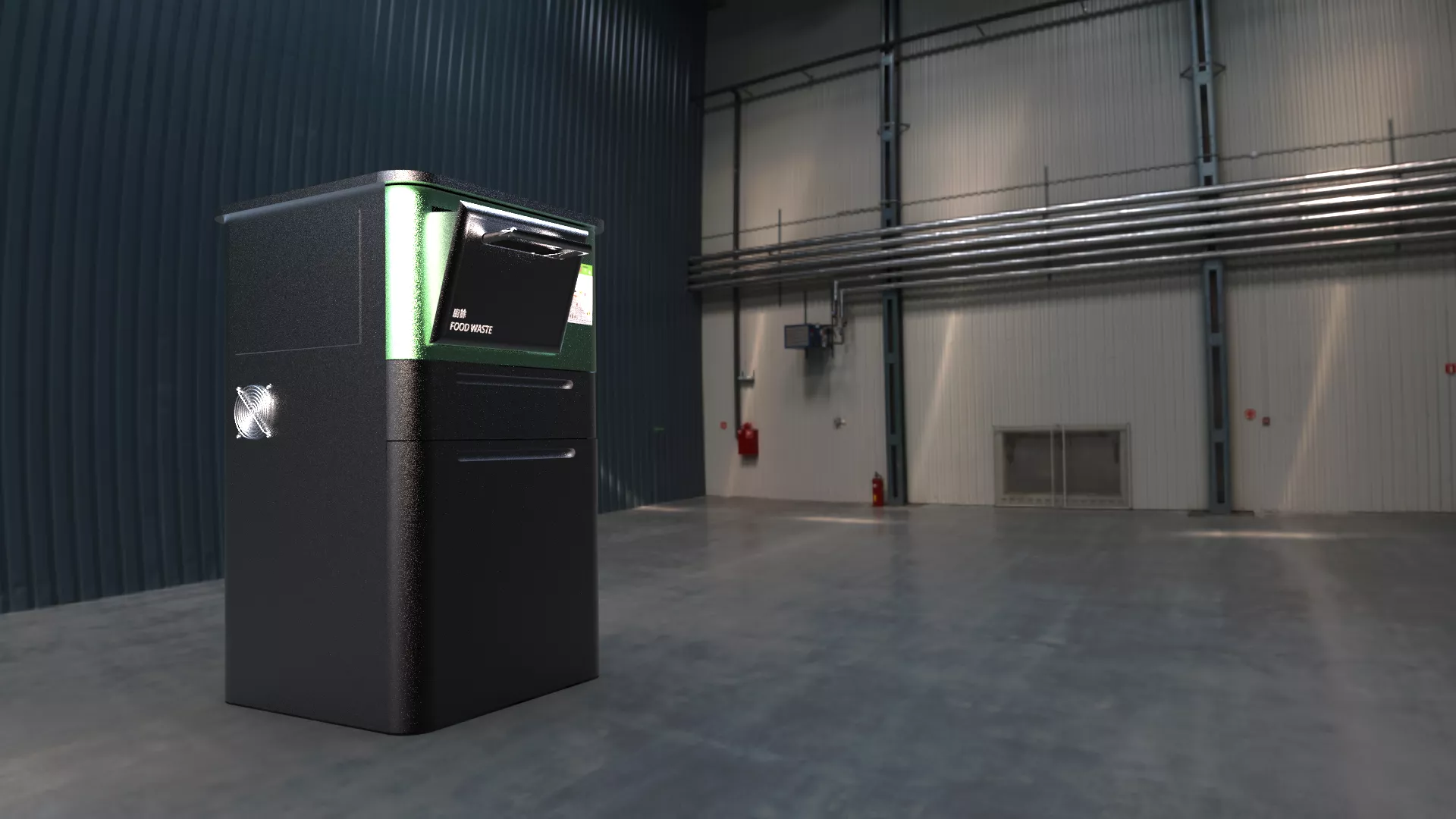
- Converting Food Waste into Construction Material: The project Turning construction and Ca-food wastes into new sustainable geological materials by CO2 sequestration mixes construction waste with Ca-rich food waste for inducing formation of binders in order to bind and strengthen the wastes for engineering applications. Through this project, HKUST aims to reduce the waste generation and increase the recycling rate.
Image

- Food Waste Analytics and Visual Feedback: Lastly, this project deployed an intelligent system used to study the food waste behaviors and analyze food consumption and waste patterns in the canteens at HKUST. With a goal of closely monitoring the trend and further identifying and implementing active mechanisms to encourage food waste reduction efforts. Through this project, the University aims to reduce the waste generation by creating a data base for opportunities exploration.
Image
